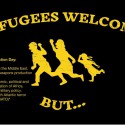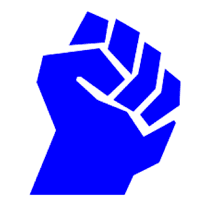Tag: Adam Bahar
-
Internationale Online-Reihe: Kirchenasyl und das globale Migrationsregime
vom BAG Asyl in der Kirche Die englischsprachige Ankündigung finden Sie hier Am 25. Mai, 2. Juni, 24. Juni und 18. Juni 2021 um 19:00 CET (Berlin)/ 13 p.m. EST (New York) – in englischer Sprache mit Simultanübersetzung ins Deutsche. Die Teilnahme ist kostenlos, eine Anmeldung ist jedoch erforderlich unter: info@kirchenasyl.de Auch eine Teilnahme an einzelnen Veranstaltungen ist…
-
Solidarität mit Adam Baher – Rassistische Kriminalisierung stoppen!
Aufruf zur solidarischen Prozessbegleitung am Di, 19.11.2019 um 13:45h im Amtsgericht Tiergarten 5 Jahre nach der gewaltvollen Räumung des Protestcamps am Berliner Oranienplatz eröffnet die Berliner Staatsanwaltschaft einen Prozess gegen den bekannten Refugee-Aktivisten Adam Baher. Adam engagiert sich seit Beginn der selbstorganisierten Protestbewegung für die Rechte von Geflüchteten, gegen Rassismus und Polizeigewalt. Nun muss er…
-
Sudan Revolution Interview
T: We already know you from the Oranienplatz resistance but can you introduce yourself a bit? A: Adam Bahar. I am coming from Sudan. I’m born in Sudan but I’m in Germany since 2012. Politically active in Sudan since 2002. I was in university fighting for the right of the people of Sudan and against…
-

Refugees need freedom, not handouts
An Essay by Political Activist Adam Bahar In this thought provoking essay Adam Bahar outlines the death of the ‘welcoming culture’ for refugees in Germany. He demonstrates how Germany has been directly responsible for supporting several dictators in the global South and how the Federal Republic is responsible for continuing to impose borders…. The article…
-
الاجئين يحتاجون الحرية لا المساعدات
كأحد الناشطين في مجال حقوق الاجئين وكمهاجر عايشت كل الظروف التي يمر بها الاجئين القادمين الي أوربا، تدور دوما في ذهني أسئلة عاصفة لا تهدا احاول هنا ان أشارككم إياها ! هل فعلا نجد في ألمانيا في ارض الواقع تلك الشعارات التي يرددها الاعلام هذه الأيام وخاصة المستشارة الألمانية. إنجيلا ميركل…
